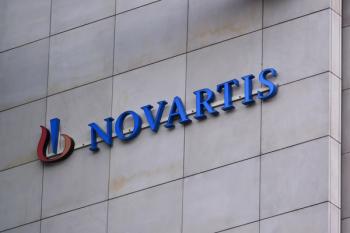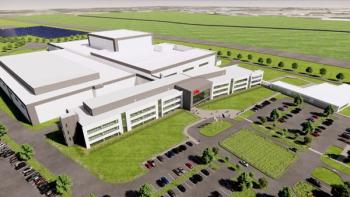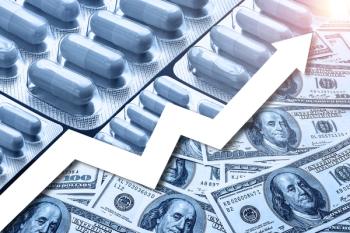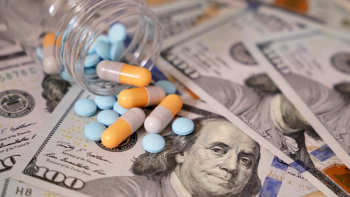
- Pharmaceutical Executive-08-01-2021
- Volume 41
- Issue 8
Biotech Capital Markets Continue to Underperform
But could there be a shift in momentum?
The biotech XBI is now down 27% from its high, and just experienced its worst six-month relative performance for the sector in five years. In July, the sector fell an additional 7%.
The rotation from growth to value continues, with healthcare the worst-performing sector and only one down for the year. Not surprisingly, consumer discretionary is the largest beneficiary of the reopening trade. Biotech is the worst-performing growth sector, with tech up nearly 20%.
Aftermarket performance for biotech IPOs has been steadily declining this year; of the last 10 IPOs (as of July 31, 2021), eight are trading near or below their deal prices. Despite this, 11 IPOs priced for proceeds of $1.3 billion in the last week of July. Moreover, the 11 IPO pricings are tied for not only the busiest week in 2021, but the busiest week in over 10 years. The prior two record weeks for IPOs came when the XBI was at record highs. As of this writing, there are six filed IPOs in the queue, and more are expected before the market shutdown in late August. The pipeline for the fall suggests continued strong activity.
Five-year outperformance still supports the bet, and the risks
Despite the recent underperformance of biotech, IPOs and follow-ons continue at a brisk pace. Biotech-dedicated funds are flush with cash, the innovation renaissance appears alive and well, and investors appear to be putting money to work and playing the long game. If an investor had put $1 into every biotech IPO over the past five years, the return would be an impressive 65%, significantly better than the S&P 500 at 42% and 39% for the XBI. In other words, investors have been rewarded for buying the inherently riskier new public company.
Follow-on issuance, however, has dropped off significantly, with 157 deals priced this year, versus 265 last year. The dollars raised plunged as well; from $56.2 billion to $21.9 billion. The numbers have been steadily falling, as the first three months of year saw 117 follow-on issuances price, while in the next four months through the end of July, only 40 deals priced. The second quarter of 2021 was the slowest one for follow-ons in the sector and the third quarter is tracking at a similarly uninspired pace. The deals that are getting done are the opportunistic raises being executed off of data, with investors showing a preference for waiting even if it means participating at a higher price with the ability to buy in size.
Special purpose acquisition company (SPAC) activity remains at all-time highs. In 2021, SPACs accounted for 70% of all IPOs, versus 57% last year, 28% in 2019, and 21% in 2018. Dollars raised thus far in 2021 of $102 billion are already ahead of the record set for the full year in 2020, as has the number of deals. So far this year, the average deal size is tracking close to last year’s record of $325.8 million.
Markets can turn on a dime with sector rotation led by rapid shifts in sentiment and valuations. In fact, early this year, the market anticipated that the vaccine-led reopening would lead to a torrid economic recovery. The growth stocks—which were the beneficiaries of a COVID-fueled plunge in the economy—were ditched in favor of the consumer discretionary sectors decimated by the COVID halt and most likely to prosper exponentially in the reopening.
With recent chatter around the rapidly spreading Delta variant, the large number of people unwilling to be vaccinated, and hospitals filling up again with COVID patients, there is talk of the potential for another lock down. Will the market rotate back to growth just as quickly as it abandoned it? This will definitely happen at some point—we know that, but could it be close at hand? Beyond COVID, valuations have recalibrated, with valuations for value stocks now relatively high versus norms, while growth stocks may be oversold.
Barbara Ryan is Founder, Barbara Ryan Advisors, and a member of Pharm Exec’s Editorial Advisory Board
Articles in this issue
over 4 years ago
Why the Pandemic is Rewriting the Biopharma Rule Bookover 4 years ago
Primary Care in Crisis: PCP Navigation in a Specialty Worldover 4 years ago
A Brave New World: Optimizing Access in Wake of COVIDover 4 years ago
By Any Genes Necessary: The Role of MEAs for Gene Therapiesover 4 years ago
A Framework for Future: Strengthening Market Access Competenciesover 4 years ago
A Global Vision for Accessover 4 years ago
Early Payer-Related Lessons for Pharma Post-Aduhelm Approvalover 4 years ago
Managing the People Side of AI AdoptionNewsletter
Lead with insight with the Pharmaceutical Executive newsletter, featuring strategic analysis, leadership trends, and market intelligence for biopharma decision-makers.




